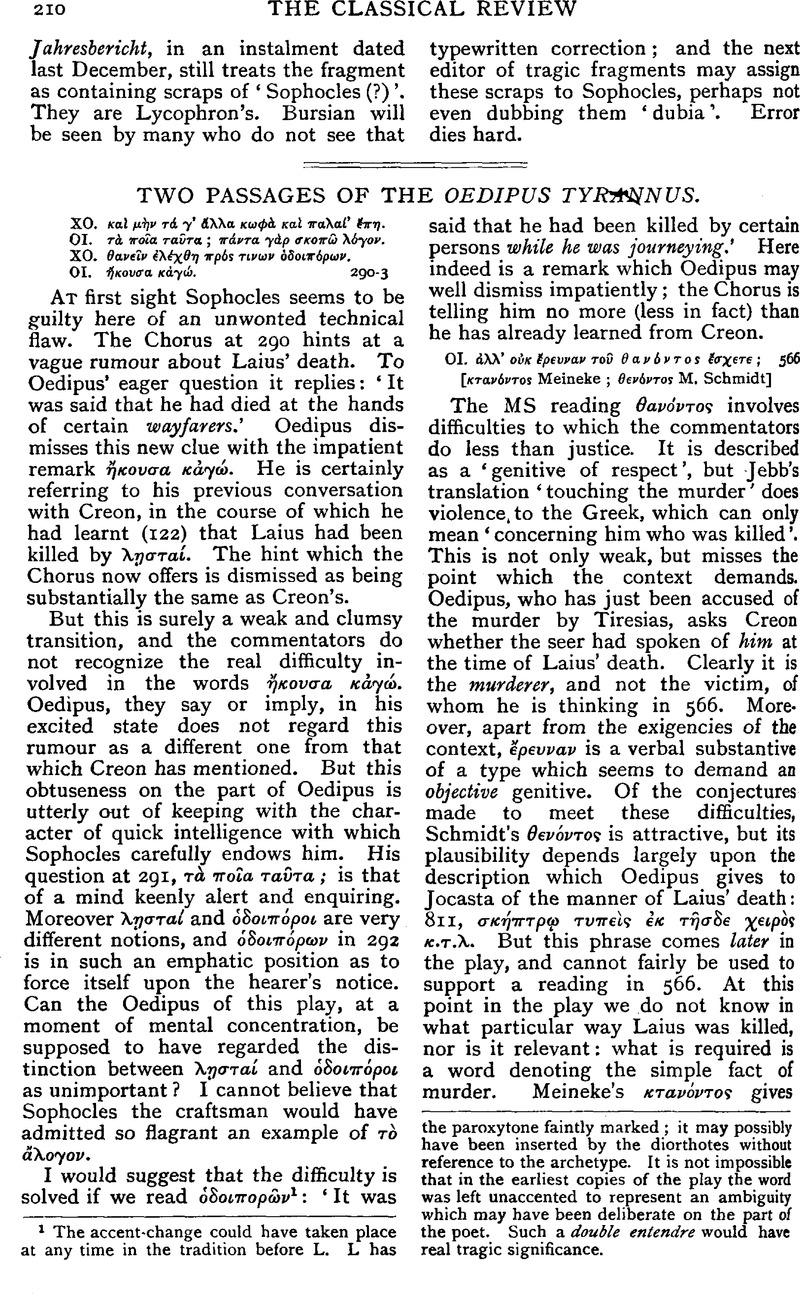Published online by Cambridge University Press: 27 October 2009

page 210 note 1 The accent-change could have taken place at any time in the tradition before L. L hasthe paroxytone faintly marked; it may possibly have been inserted by the diorthotes without reference to the archetype. It is not impossible that in the earliest copies of the play the word was left unaccented to represent an ambiguity which may have been deliberate on the part of the poet. Such a double entendre would have; real tragic significance.
page 211 note 1 For instances in Sophocles of the aorist ϰανоν see O.C. 545, Ant. 1319, 1340. It is comparatively common in Euripides; for the participle see H.F. 865.